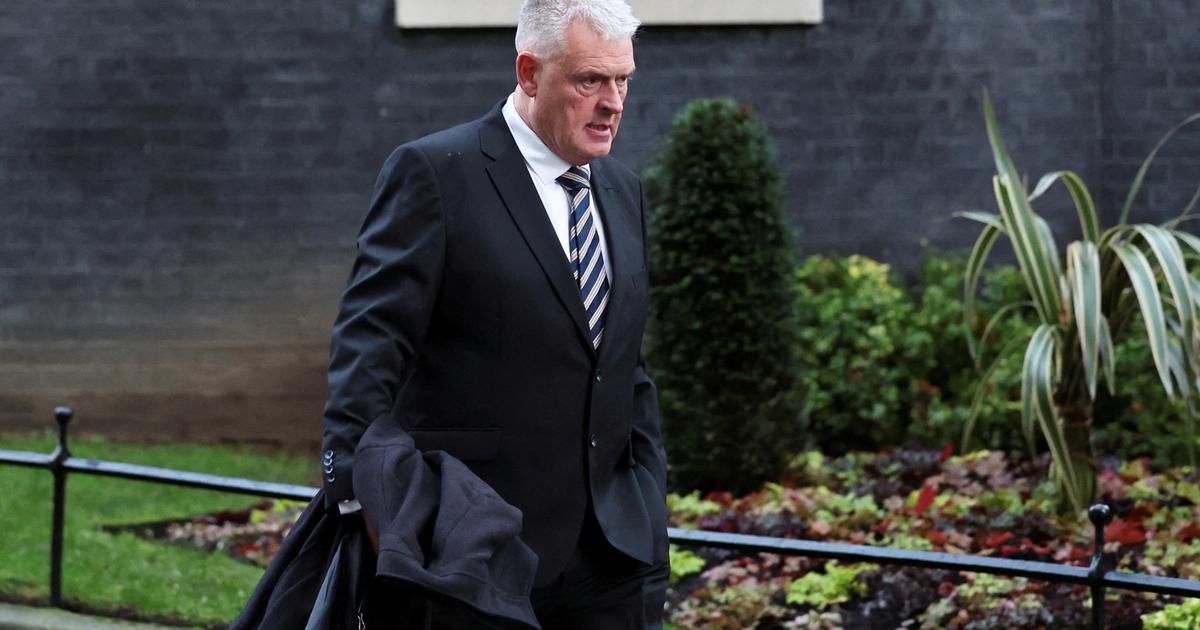United Kingdom and Gibraltar European Union membership referendum
all articles
Time is short: If no one else does something decisive, Britain will fly out of the EU within a few weeks. It's over on October 31, just like that, regardless of whether the kingdom is covered by a Brexit deal or not.
Although British MPs have obliged Boris Johnson to apply for a moratorium on the withdrawal date in Brussels if necessary. But the EU would have to agree first. And anyway: Who knows in this premier, whether he can be destroyed by a law his most important election pledge. The British will leave in late October, Johnson has been repeating for weeks. It is his mantra.
So there is still a lot to talk about and argue about in the UK. But in the top house of the debate, the British Parliament, happens these days: nothing.
Where opposition and government have fiercely fought over Brexit for years, banks have been empty since the beginning of last week. Right now, in the face of a historic decision.
REUTERS
Protest sign on the chair of the Unterhaussprechers: "Silenced"
Blame is the so-called prorogation, a forced break, the Johnson has imposed on the deputies. By 14 October, the announcement says, Parliament can no longer meet. For many observers it is clear: The maneuver is an attempt to shut down the lower house so that no one gets in the way of the Brexit government anymore.
This is also what Scotland's highest court, the Court of Session in Edinburgh, sees. Johnson's prorogation, the judges said Wednesday, is "unlawful because it was intended to hamper parliament."
Did the prime minister act illegally? Did he even lie? These questions are now the subject of Britain's Supreme Court in the last resort. This Tuesday begins the three-day trial. The verdict could have consequences - for Johnson's career, for Brexit, for the political power structure on the island. The most important questions and answers.
What exactly is Johnson accusing?
It is quite common in the UK to suspend Parliament. This usually happens once a year. The break ends a session and allows Downing Street to present the program for the next phase of government with a subsequent speech by the Queen. Usually these breaks last only a few days and are not imposed against the will of most MPs - let alone in such volatile political times.
Johnson wants to shut down the parliamentary business for about five weeks. There would hardly be any time left for MEPs to intervene in the Brexit process. The suspicion is obvious that it was the prime minister. The Scottish judges consider this an unlawful attempt to block parliamentary control of the executive.
Johnson and his people have always justified their decision by having to put forward a new agenda for the future, after an overly long period of government. On this ground, they asked the queen, who is formally responsible, to order the prorogation. Did you mislead the monarch? It would be a monstrous abuse of the queen, who actually has to stay out of political affairs.
What is the legal situation?
Opposition politicians and activists responded with several complaints to Johnson's frontal attack. The High Court in London, unlike its Scottish counterparts, said the suspension of Parliament was a purely political matter. The judiciary is therefore not responsible. The court in Edinburgh, on the other hand, claims to be in a position to decide on the step of the prime minister. However, it left open how and when Parliament should reunite. There is no concrete rule for it.
So the Supreme Court is also deciding on a legal dilemma: Can the judiciary set the rules for the occasions and duration of a parliament break? In this case, she would automatically intervene in politics.
What impact can the verdict have?
For Johnson, the thing is already a problem. Even if he wins in court - the opposition has already worked at length on the prime minister. The suspicion that he wanted to pass the parliament, Johnson would not get rid of so fast.
It gets really tight for him, if the judges certify him unlawful behavior. In this case, demand Johnson's critics, the Tory boss must resign. In normal times, any prime minister would probably do so in such a situation. But there is hardly anything normal in Westminster at the moment. If Johnson clings to office, the opposition could use the opportunity for a vote of no confidence.
Either way: If the court decides against the government, the deputies may reunite immediately. They could then work on their own initiatives to secure a deal with the EU. And they have plenty of time to make further arrangements to hold Johnson to account - if, for example, it becomes clear that the prime minister wants to avoid the law against a hard Brexit. In addition, presumably, the upcoming party congress would be canceled in order not to lose session time.
But in the end, it's also about fundamental questions: how and when can parliament and the judiciary control the government? And what is the value of the jurisdiction of the Scottish judges? Because even this is clear: Should the verdict from Edinburgh be overruled in the end, this should give the already resurgent independence movement in the north further boost.











/cloudfront-eu-central-1.images.arcpublishing.com/prisa/KMEYMJKESBAZBE4MRBAM4TGHIQ.jpg)


/cloudfront-eu-central-1.images.arcpublishing.com/prisa/EXJQILQR5QI7OMVRTERD7AEZAU.jpg)
